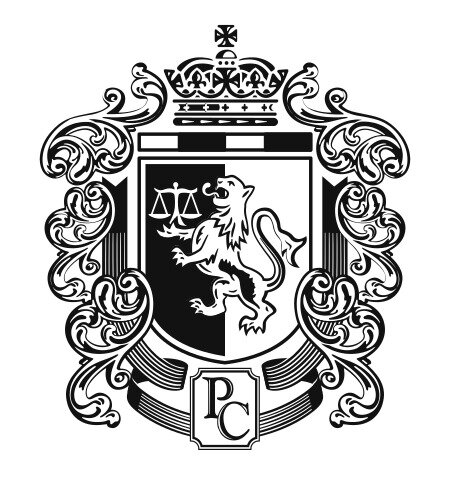Best Constitutional Law Lawyers in Toronto
Share your needs with us, get contacted by law firms.
Free. Takes 2 min.
List of the best lawyers in Toronto, Canada
About Constitutional Law in Toronto, Canada:
Constitutional Law in Toronto, Canada refers to the body of laws and principles that govern the relationship between individuals and the state, as well as the structure and operation of government institutions. It is based on the Canadian Constitution, which includes the Constitution Act, 1867, and the Canadian Charter of Rights and Freedoms. Constitutional Law in Toronto, Canada is essential for protecting the rights and freedoms of individuals and ensuring the proper functioning of government.
Why You May Need a Lawyer:
There are several situations where you may require legal help in Constitutional Law in Toronto, Canada. Some common scenarios include challenging government actions that violate your rights, seeking redress for discrimination, and seeking clarification on your constitutional rights in a specific situation. A lawyer can provide valuable advice, representation, and guidance to help you navigate complex legal issues in Constitutional Law.
Local Laws Overview:
In Toronto, Canada, Constitutional Law is governed by federal laws, such as the Canadian Constitution and the Canadian Charter of Rights and Freedoms. These laws outline the fundamental rights and freedoms of individuals in Canada and set the framework for government actions. Additionally, Ontario has its own Human Rights Code, which prohibits discrimination in various areas, including employment, housing, and services.
Frequently Asked Questions:
1. What rights are protected under the Canadian Charter of Rights and Freedoms?
The Canadian Charter of Rights and Freedoms protects fundamental rights and freedoms, including freedom of expression, freedom of assembly, and the right to equality.
2. How can I challenge a government action that violates my constitutional rights?
You can challenge a government action by filing a lawsuit in court, arguing that the action violates your rights under the Canadian Charter of Rights and Freedoms or the Constitution Act, 1867.
3. Can I seek compensation for discrimination under the Ontario Human Rights Code?
Yes, if you have experienced discrimination in areas such as employment, housing, or services, you can file a complaint with the Ontario Human Rights Tribunal and seek compensation for damages.
4. How can a lawyer help me with a constitutional law issue?
A lawyer can provide legal advice, represent you in court, help you navigate complex legal procedures, and advocate for your rights in Constitutional Law cases.
5. Are there time limits for filing a lawsuit challenging a government action?
Yes, there are time limits for filing lawsuits challenging government actions, so it is important to consult with a lawyer promptly if you believe your rights have been violated.
6. What is the process for amending the Canadian Constitution?
Amending the Canadian Constitution requires the consent of Parliament and the legislatures of at least two-thirds of the provinces representing at least 50% of the population.
7. Can the government limit my rights under the Canadian Charter of Rights and Freedoms?
The government can limit rights under the Charter if the limitation is justified in a free and democratic society and is reasonable and demonstrably justifiable in a free and democratic society.
8. What is the role of the judiciary in upholding constitutional rights?
The judiciary plays a crucial role in upholding constitutional rights by interpreting laws, resolving disputes, and ensuring that government actions comply with the Constitution.
9. Can I represent myself in a constitutional law case?
While you have the right to represent yourself in court, constitutional law cases can be complex, so it is advisable to seek legal representation to ensure your rights are protected.
10. How can I stay informed about changes in Constitutional Law in Toronto, Canada?
You can stay informed about changes in Constitutional Law by following legal news, consulting legal resources, and seeking advice from legal professionals specializing in Constitutional Law.
Additional Resources:
For additional resources on Constitutional Law in Toronto, Canada, you can contact the Canadian Civil Liberties Association, the Ontario Human Rights Commission, or consult legal publications and websites specializing in Constitutional Law.
Next Steps:
If you require legal assistance in Constitutional Law in Toronto, Canada, the first step is to consult with a qualified lawyer specializing in Constitutional Law. They can provide you with personalized advice, assess your situation, and guide you through the legal process to protect your rights and interests.
Lawzana helps you find the best lawyers and law firms in Toronto through a curated and pre-screened list of qualified legal professionals. Our platform offers rankings and detailed profiles of attorneys and law firms, allowing you to compare based on practice areas, including Constitutional Law, experience, and client feedback.
Each profile includes a description of the firm's areas of practice, client reviews, team members and partners, year of establishment, spoken languages, office locations, contact information, social media presence, and any published articles or resources. Most firms on our platform speak English and are experienced in both local and international legal matters.
Get a quote from top-rated law firms in Toronto, Canada — quickly, securely, and without unnecessary hassle.
Disclaimer:
The information provided on this page is for general informational purposes only and does not constitute legal advice. While we strive to ensure the accuracy and relevance of the content, legal information may change over time, and interpretations of the law can vary. You should always consult with a qualified legal professional for advice specific to your situation.
We disclaim all liability for actions taken or not taken based on the content of this page. If you believe any information is incorrect or outdated, please contact us, and we will review and update it where appropriate.
















